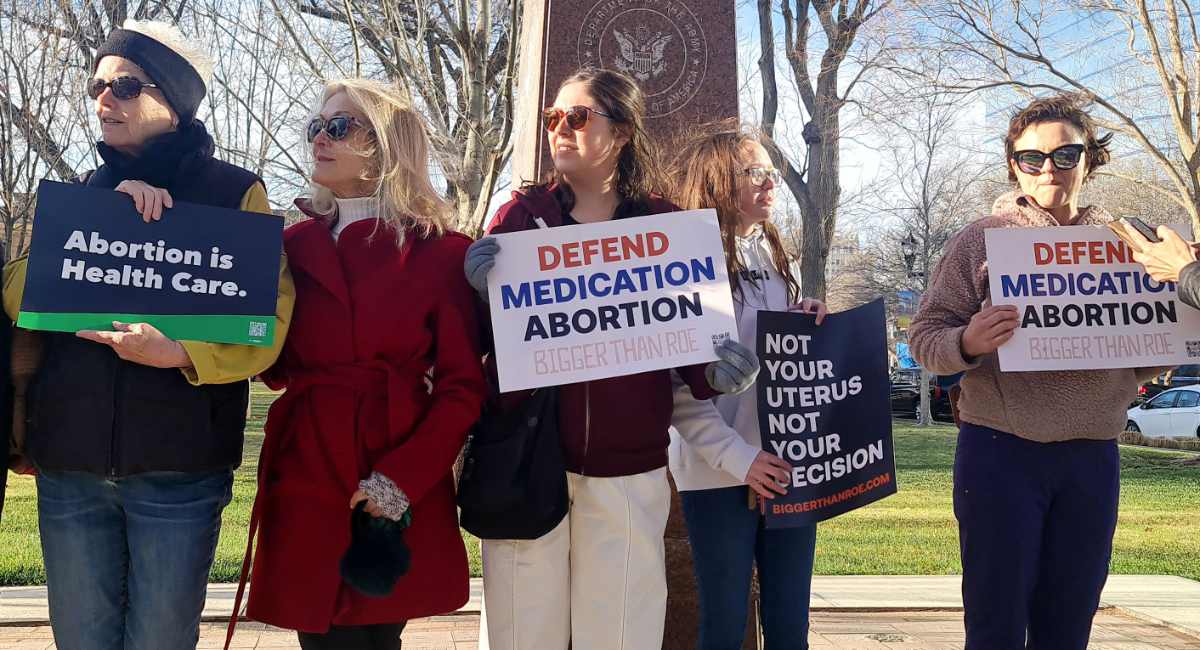A group of more than 600 pro-abortion legislators from 49 states have asked the Supreme Court to protect access to the abortion pill.
In an amicus brief to the court, the legislators asked that SCOTUS overturn the decision of the 5th Circuit Court of Appeals in Alliance for Hippocratic Medicine vs. U.S. Food and Drug Administration to uphold the suspension of mail-order abortion pills and reinstate safety requirements dated prior to 2016. Read the timeline of the abortion pill in the United States here. Though the Supreme Court has not yet accepted the case, it did temporarily block the 5th Circuit’s ruling.
The brief was put together by State Innovation Exchange’s (SiX) Reproductive Freedom Leadership Council. SiX provides resources to state legislators so they can advocate for progressive policies such as pro-abortion laws. The group said it asked both Republican and Democrat legislators to sign the brief, but not a single Republican would sign on.
Every state except for Mississippi had a legislator sign on to the brief. The highest number of legislators came from Illinois, North Carolina, New York, and Colorado. Jennifer Driver, SiX’s senior director of reproductive rights, said that restoring safety regulations for the abortion pill ‘interferes with’ legislators’ “ability to protect their community.” In reality, the abortion pill comes with risks to women as well as to preborn children, especially when safety measures are removed.
The safety regulations in question would affect the use of telemedicine (no in-person visits) to prescribe the abortion pill, mailing the abortion pill to women, and restoring the timeline for abortion pill use to seven weeks instead of 10. The abortion pill has been found to be four times more dangerous for women than first-trimester surgical abortion, and research has shown that it carries the risk of hemorrhage and incomplete abortion.
A study sponsored by the pro-abortion Gynuity and published in 2021 in the journal Contraception revealed that 6% of 1,157 women who took the abortion pill visited the emergency room or an urgent care center for abortion pill-related complications. Ten of those were serious, with five women requiring blood transfusions.
This data mirrors that of research in the United Kingdom, where it was also found that nearly 6% of women who took the abortion pill between June 1, 2019, and May 31, 2021, were treated for complications. A 2020 report from the abortion group Marie Stopes Australia also revealed a complication rate of 6.37% for women who took the abortion pill that year.
Requiring that women undergo an examination by a doctor before taking the abortion pill protects them from the increased risk of hemorrhage and death associated with abortion pill use while experiencing an undiagnosed ectopic pregnancy. In addition, mailing the abortion pill to women instead of having them take the first pill in person at the abortion business opens the door for coerced abortion in which a woman may be forced to take the abortion pill against her will or a predatory man may obtain it dishonestly. In addition, the further along in pregnancy a woman is when she takes the abortion pill, the more likely she is to experience an incomplete abortion — which can lead to infection and death.
According to the Ohio Capital Journal, attorneys for the Alliance for Hippocratic Medicine are scheduled to file their brief asking SCOTUS not to take the case by November 9.








